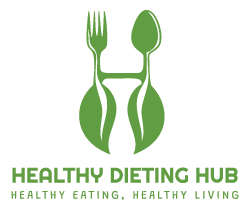
In today’s dynamic work environment, irregular work hours have become increasingly prevalent. Whether due to shift work, freelancing, or gig economy jobs, more individuals are experiencing non-traditional schedules that deviate from the standard 8-to-5. While such flexibility can provide various benefits, it also presents significant challenges, particularly in maintaining a healthy diet. Irregular work hours can disrupt meal preparation routines, leading to poorer diet quality and associated health risks. This article explores the impact of non-traditional work schedules on dietary habits and provides practical strategies to mitigate these effects, ensuring that even the busiest individuals can maintain a balanced and nutritious diet.
The Impact of Irregular Work Hours on Meal Preparation
1. Disrupted Eating Patterns
Irregular work hours often lead to inconsistent meal times. Traditional meal patterns, such as breakfast, lunch, and dinner, may become fragmented, leading to irregular eating habits. This inconsistency can disrupt the body’s natural hunger cues and result in overeating or undereating. For example, a night shift worker might skip breakfast, have lunch at an odd hour, and eat dinner late at night, causing a misalignment with the body’s natural circadian rhythm.
2. Limited Time for Cooking
With fluctuating work schedules, finding time to prepare healthy meals can be challenging. Workers may resort to quick, convenient options such as fast food or processed snacks, which are typically less nutritious. The lack of time can also reduce the likelihood of planning and preparing balanced meals, leading to poor diet quality. A busy schedule can make it difficult to dedicate time to grocery shopping, meal prepping, and cooking, resulting in a reliance on less healthy options.
3. Increased Reliance on Convenience Foods
The convenience factor plays a significant role in the dietary choices of individuals with irregular work hours. Pre-packaged, ready-to-eat meals and snacks become more appealing due to their ease and speed. However, these foods often contain high levels of sodium, sugar, and unhealthy fats, contributing to a less balanced diet. The frequent consumption of convenience foods can also lead to overconsumption of calories, as these foods are often designed to be hyper-palatable and easy to overeat.
The Effect on Diet Quality
1. Nutritional Deficiencies
Irregular eating patterns and reliance on convenience foods can lead to nutritional deficiencies. Essential nutrients such as vitamins, minerals, and fiber may be lacking in the diet, which can affect overall health and well-being. For example, insufficient intake of fruits and vegetables can lead to a deficiency in vitamins A and C, as well as fiber. Workers with irregular hours may find it challenging to include a variety of nutrient-dense foods in their diet, leading to imbalances and deficiencies.
2. Weight Management Issues
Inconsistent meal times and unhealthy food choices can contribute to weight gain. Studies have shown that irregular eating patterns are associated with higher body mass index (BMI) and increased risk of obesity. Skipping meals or eating at odd hours can disrupt metabolism and lead to overeating later in the day. This can be exacerbated by the body’s tendency to store more fat when eating at times that are out of sync with the natural circadian rhythm.
3. Increased Risk of Chronic Diseases
Poor diet quality linked to irregular work hours can increase the risk of chronic diseases such as diabetes, cardiovascular disease, and hypertension. High consumption of processed foods, coupled with low intake of nutrient-dense foods, can contribute to the development of these conditions over time. The combination of irregular eating patterns, poor diet quality, and potential weight gain creates a perfect storm for the development of chronic health issues.
Strategies to Improve Meal Preparation and Diet Quality
1. Plan Ahead
Planning meals in advance can help maintain a balanced diet despite an irregular schedule. Meal prepping on days off or during free time can ensure that healthy, home-cooked meals are readily available. Portioning out meals and snacks can also prevent reliance on unhealthy convenience foods. Creating a weekly meal plan and grocery list can streamline the process and make it easier to stick to a healthy diet.
2. Focus on Nutrient-Dense Foods
Prioritizing nutrient-dense foods such as fruits, vegetables, lean proteins, and whole grains can improve diet quality. These foods provide essential nutrients and can be incorporated into quick and easy meals. Keeping healthy snacks on hand, such as nuts, yogurt, and fresh produce, can also help maintain energy levels throughout the day. Choosing whole, unprocessed foods can provide the nutrients needed to support overall health and well-being.
3. Establish a Routine
Creating a consistent eating routine, even with a fluctuating work schedule, can help regulate eating patterns. Setting specific times for meals and snacks, and sticking to them as much as possible, can support better digestion and metabolism. Avoiding late-night eating and ensuring a balanced breakfast can set a positive tone for the day. Establishing regular meal times can also help train the body’s hunger cues and improve overall dietary habits.
4. Stay Hydrated
Proper hydration is crucial for overall health and can support better dietary choices. Drinking water throughout the day can help control hunger and prevent overeating. Keeping a water bottle handy and setting reminders to drink water can ensure adequate hydration. Staying hydrated can also help improve energy levels, concentration, and overall well-being.
5. Seek Support
Engaging with a nutritionist, dietitian or a life coach can provide personalized guidance and support for maintaining a healthy diet. These professionals can offer tailored guidance based on individual schedules and dietary needs, helping to navigate the challenges of irregular work hours. Seeking support from a healthcare professional can also provide accountability and motivation to stick to healthy eating habits.
6. Utilize Technology
There are numerous apps and online resources available that can assist with meal planning, grocery shopping, and tracking nutritional intake. Utilizing these tools can simplify the process of maintaining a healthy diet and make it easier to stay on track. Apps can provide recipe ideas, shopping lists, and nutritional information, making it easier to make informed dietary choices.
7. Prepare Grab-and-Go Meals
For those with especially hectic schedules, preparing grab-and-go meals and snacks can be a lifesaver. Items such as overnight oats, salad jars, and homemade protein bars can be prepared in advance and eaten on the go. Having these convenient, healthy options available can prevent reliance on less nutritious convenience foods.
8. Practice Mindful Eating
Mindful eating involves paying attention to the body’s hunger and fullness cues and eating slowly and without distraction. Practicing mindful eating can help improve digestion, prevent overeating, and enhance overall enjoyment of food. Taking time to savor meals and eat without distractions can also help improve dietary habits and overall well-being.
Real-Life Examples and Case Studies
1. Shift Workers
Shift workers, such as nurses, factory employees, and first responders, often face irregular work hours that can disrupt their eating patterns. Studies have shown that shift workers are more likely to experience nutritional deficiencies, weight gain, and chronic health issues compared to those with regular work hours. For example, a study published in the journal Occupational Medicine found that shift workers had higher rates of obesity and metabolic syndrome compared to non-shift workers. Implementing meal planning and focusing on nutrient-dense foods can help mitigate these risks.
2. Freelancers and Gig Workers
Freelancers and gig workers often have unpredictable schedules that can make it difficult to maintain a consistent eating routine. The flexibility of these jobs can lead to irregular meal times and reliance on convenience foods. However, by planning meals in advance and prioritizing nutrient-dense foods, freelancers and gig workers can improve their diet quality and overall health. For instance, a freelance writer might set aside time each week to meal prep and ensure they have healthy snacks available while working.
3. Long-Haul Truck Drivers
Long-haul truck drivers spend extended periods on the road, often with limited access to healthy food options. The sedentary nature of their job and irregular eating patterns can contribute to poor diet quality and increased health risks. Programs that provide drivers with access to healthy meals and encourage physical activity have shown promising results in improving health outcomes. For example, a program implemented by a trucking company provided drivers with access to healthy meals and fitness facilities, resulting in improved diet quality and overall health.
Wrapping Up
Irregular work hours can significantly impact meal preparation and diet quality, leading to nutritional deficiencies, weight management issues, and increased risk of chronic diseases. However, with careful planning, focus on nutrient-dense foods, and the establishment of a consistent eating routine, individuals can overcome these challenges and maintain a healthy diet. By prioritizing meal preparation and making mindful food choices, even those with the most unpredictable schedules can achieve better health and well-being.
Maintaining a healthy diet amidst the demands of irregular work hours requires effort and commitment, but the benefits to overall health and well-being are well worth it. With the right strategies and support, it is possible to navigate the challenges of irregular work schedules and achieve optimal nutrition. By taking proactive steps to plan meals, focus on nutrient-dense foods, and establish a consistent eating routine, individuals can improve their diet quality and support long-term health and wellness.
Take Control of Your Nutrition Today
Don’t let irregular work hours derail your health and well-being. By implementing these practical strategies, you can maintain a balanced and nutritious diet no matter how hectic your schedule may be. Start planning your meals, prioritizing nutrient-dense foods, and establishing a consistent eating routine to ensure you stay on track.
Take the first step towards better health today: Schedule a coaching session with one of our expert nutritionists to receive personalized resources and guidance based on your unique work schedule and dietary needs.
Explore our website to access more resources and start your journey to better health. Remember, a better diet option is within your reach, even with the busiest of schedules. Make a commitment to your well-being today!
Explore Our Resources | Join Our Community | Consult a Life Coach


